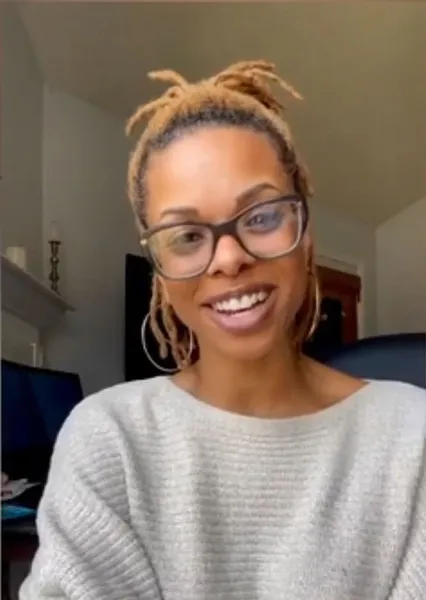Make Smart Choices
GreenPath will explain how reverse mortgage works, including payout options, homeowner costs, tax implications, and other benefits and drawbacks. Once you complete our reverse mortgage counseling session, you’ll receive a certificate that lenders require as part of the loan application. Speak with a GreenPath housing counselor today.
In order to qualify for a reverse mortgage you must be at least 62 years of age. The federal government also requires that you participate in a counseling session with an approved non-profit agency. GreenPath is certified and our reverse mortgage counseling can be completed over the phone or in person. Our goal is to help you understand all your options so you can feel confident and make an informed decision. We can also assist you if you already have a reverse mortgage and are having trouble paying your property taxes or insurance.


GreenPath Housing Experts Can Help You Understand the Cost
For seniors who need income in retirement a reverse mortgage might seem like a no-brainer. After all, you worked hard for your home, why not draw on the equity you built up? A reverse mortgage might serve you well, but there are a number of critical issues you need to consider before you can make the right decision. Consulting with a GreenPath housing expert can help you understand the cost involved and the benefits.
800-550-1961877-337-3399
Reverse Mortgage Resources

National Council on Aging
Use Your Home to Stay at Home: For many older adults, your home is their biggest financial asset, and you want to remain there as long as possible.

Reverse Mortgage and Long-Term Care – A Place for Mom
The website A Place for Mom asked GreenPath to share details about taking on a reverse mortgage.

HUD Awards $40M in Housing Counseling Grants – Reverse Mortgage
Excerpt from Reverse Mortgage Daily details HUD housing counseling grant awarded to GreenPath Financial.

Reverse Mortgage FAQs
The Reverse Mortgage counseling session costs $199. Grant funds available through the Department of Housing and Urban Development (HUD) allow us to keep our counseling affordable and accessible. If you are pursuing a Home Equity Conversion Mortgage (HECM) you may qualify to have the fee financed based on your income, family size and geographic location.
No, non-profit housing counseling agencies are not permitted to receive money or direct referrals from reverse mortgage lenders. GreenPath is a housing counseling agency, not a lender.
No, GreenPath is not a lender and is not involved in the lending transaction. We are an impartial educational resource to equip seniors and their family members with knowledge to make an informed decision.
Yes. It is important to know what type of reverse mortgage counseling you need when scheduling your appointment. This is important since the certificates are not interchangeable. If you are exploring a HECM reverse mortgage, we are required to send you a few documents to read prior to your counseling session.
The counseling session must be completed by anyone on the deed of the home on which you are seeking the reverse mortgage. A non-borrowing spouse is also required to be counseled. Some clients also choose to involve adult children, or other family members.
A reverse mortgage is a loan that allows homeowners 62 or older to borrow against the equity in their home. Some proprietary Home Equity Conversion Mortgages (HECMs) are available to younger borrowers aged 55 and older. Instead of making mortgage payments, the reverse mortgage borrower can access equity that they will not pay back until they move. Note that there are other instances where the reverse mortgage becomes due and payable, such as failure to pay property taxes and insurance or if the home is no longer the borrower’s primary residence) With the reverse mortgage, borrowers draw out funds and as interest accrues on the loan, the balance grows and the equity position in the property lessens. Reverse mortgage lenders hold the borrower responsible for paying property taxes and home insurance, and the loan is due and payable in full when the last borrower moves from the home, sells the home, or passes away.
Most reverse mortgages are Home Equity Conversion Mortgages (HECMs). The Federal Housing Administration (FHA), a part of the Department of Housing and Urban Development (HUD), insures HECMs. Like a traditional mortgage, HECM borrowers use their home as security for the loan. In a reverse mortgage, the loan for the original borrowed amount plus interest and fees becomes due and payable in full when the last borrower moves, sells, or passes away. To qualify, the federal government requires senior borrowers to participate in a reverse mortgage counseling session with an approved non-profit agency. GreenPath is certified, and reverse mortgage counseling can be completed over the phone or in person. Counseling helps borrowers understand all options so they can feel confident in their decision.
Yes. When a borrower takes out a reverse mortgage loan, the title to the home remains with the borrower. Borrowers must continue to pay property taxes, homeowner’s insurance, and make necessary repairs or the lender can foreclose on the home. Most lenders require the borrower to use the home as their principal residence. When the borrower moves, sells their home, or the last surviving borrower or non-borrowing spouse passes, the borrower or estate must repay the reverse mortgage loan balance, which includes the amount received in cash, plus monthly interest and fees that have been added to the balance.
Aging in place is the desire of most seniors. A reverse mortgage can enable seniors on a fixed income to achieve this goal, as it helps borrowers with costly expenses and home repairs. A reverse mortgage can be a sensible option for seniors with sufficient income who need to cover all of their expenses (including property taxes and insurance) as they live comfortably in their home and age in place.
Some borrowers lack a spending plan and are unable to meet their loan obligations such as paying taxes and insurance, thus risking foreclosure. Many borrowers are also used to having insurance and property taxes paid for in escrow as part of their mortgage payment. In switching to a reverse mortgage, they no longer make a mortgage payment, but remain responsible for property taxes and insurance. It’s easy to overlook these larger bills (due only once or twice a year) if calendar reminders and budget adjustments aren’t in place.
Yes. If it is necessary to sell a home with a reverse mortgage loan, the borrower must pay back the money borrowed plus interest and fees upon the sale. If the loan balance is less than the amount for which the home was sold, the borrower keeps the difference. If the reverse mortgage loan balance exceeds the amount for which the home was sold, and the home sells at its appraised value, money from the sale goes toward the outstanding loan balance. Any remaining balance of the loan must be paid to enable the sale to close.
Yes. If it is necessary to sell a home with a reverse mortgage loan, the borrower must pay back the money borrowed plus interest and fees upon the sale. If the loan balance is less than the amount for which the home was sold, the borrower keeps the difference. If the reverse mortgage loan balance exceeds the amount for which the home was sold, and the home sells at its appraised value, money from the sale goes toward the outstanding loan balance. Any remaining balance of the loan must be paid to enable the sale to close.
While there are no set timelines, a reverse mortgage application process generally takes a few months depending on each borrower’s situation. The process typically involves six steps. First, a reverse mortgage applicant researches lenders and terms. Next, they submit an initial application with the lender to begin the formal application process. Once the application is completed, the applicant must receive counseling from an HUD-approved agency such as GreenPath. Counseling can happen before or after the initial application in most states. Final steps involve appraisal to establish the value of the property; underwriting in which the lender confirms the applicant’s legal ownership of the property through a title search and purchasing title insurance; and setting a closing date where a notary or attorney meets with the applicant to finalize closing documents. Again, the time it takes to move through these steps varies depending on the state in which the reverse mortgage will be issued, and the borrower’s specific situation.
Yes. As with any loan, the interest rate applied to a reverse mortgage is the amount the lender charges in exchange for lending money. With a reverse mortgage, interest accrues monthly, but the amount owed increases over time rather than decreases. As the borrower withdraws more money and interest compounds (or adds to itself), the interest owed also increases. Reverse mortgages can have fixed interest rates which hold for the life of the loan, or variable rates which fluctuate based on the federal rate index.
Generally, those seeking a reverse mortgage borrow between 40% to 60% of the home’s appraised value. If a balance remains on a primary mortgage, the lender requires the reverse mortgage proceeds be used to pay that off first. A reverse mortgage should not be used as a crisis management tool. GreenPath reverse mortgage counseling helps borrowers understand the available options based on their situation. It’s common to experience information overload with only one session so we suggest seniors supplement with additional financial counseling once the loan closes and periodically thereafter.
Obtaining a reverse mortgage usually doesn’t impact a borrower’s credit history or score, since the borrower is not required to make payments to the lender. However, should the loan default when payment is due—or if there’s an inability to meet loan obligations—credit history and score may be impacted, depending on the borrower’s specific situation. Seniors should work with the lender and GreenPath to ensure coverage of property-related costs which can include taxes, insurance, HOA fees, and upkeep.
Credit scores aren’t usually a significant factor in approval for a reverse mortgage loan. However, reverse mortgage lenders often complete a credit check as part of their financial assessment to determine a borrower’s ability to meet loan obligations such as keeping up to date with property taxes, homeowners’ insurance, and other home costs.
Yes, borrowers can be denied if they do not meet age requirements, do not have the required equity in the home, or aren’t inhabiting the property as a principal residence. The borrower’s financial and credit standing can also be a disqualifier (for example, if a lender’s financial assessment shows that the homeowner can’t afford property’s upkeep, taxes, and insurance costs). Some lenders may also consider any federal debt held by the borrower for qualification purposes.
Yes, there are fees associated with a reverse mortgage. Reverse mortgages typically carry higher fees than traditional “forward” mortgages and can be costly because of origination fees, servicing fees, and third-party closing charges such as an appraisal, title search, and recording costs. Borrowers must pay an upfront mortgage insurance premium. Borrowers should maintain a sound financial plan and prepare for these fees.
While there are no specific income requirements to qualify, lenders conduct a financial assessment analyzing the borrower’s residual income, which is the remaining income after all other financial obligations have been met. Residual income analysis helps determine if the borrower can continue living at home while paying housing obligations such as property taxes, insurance, and other related costs. Non-payment constitutes a default under the loan terms. Everyone’s financial picture is unique. Seniors can contact GreenPath for a counseling session to ensure their situation is suitable for a reverse mortgage. Once a borrower completes the mortgage counseling session, they receive a certificate that lenders require as part of the loan application.
Borrowers seeking a reverse mortgage are required to own the home outright or have significant equity, which is the difference between the home’s current value and the amount of outstanding liens against the property. Equity requirements vary by lender and the type of reverse mortgage. General requirements range from requiring up to 60% equity in the home. Note that equity is determined not only by how much has been paid on the residence, but also how much the house is worth based on a current market appraisal.
Talk to a GreenPath Counselor Today, It’s Free
Call us to learn the pros and cons and get all of your questions answered. We will equip you with the knowledge to determine if it is right for you.
800-550-1961877-337-3399

